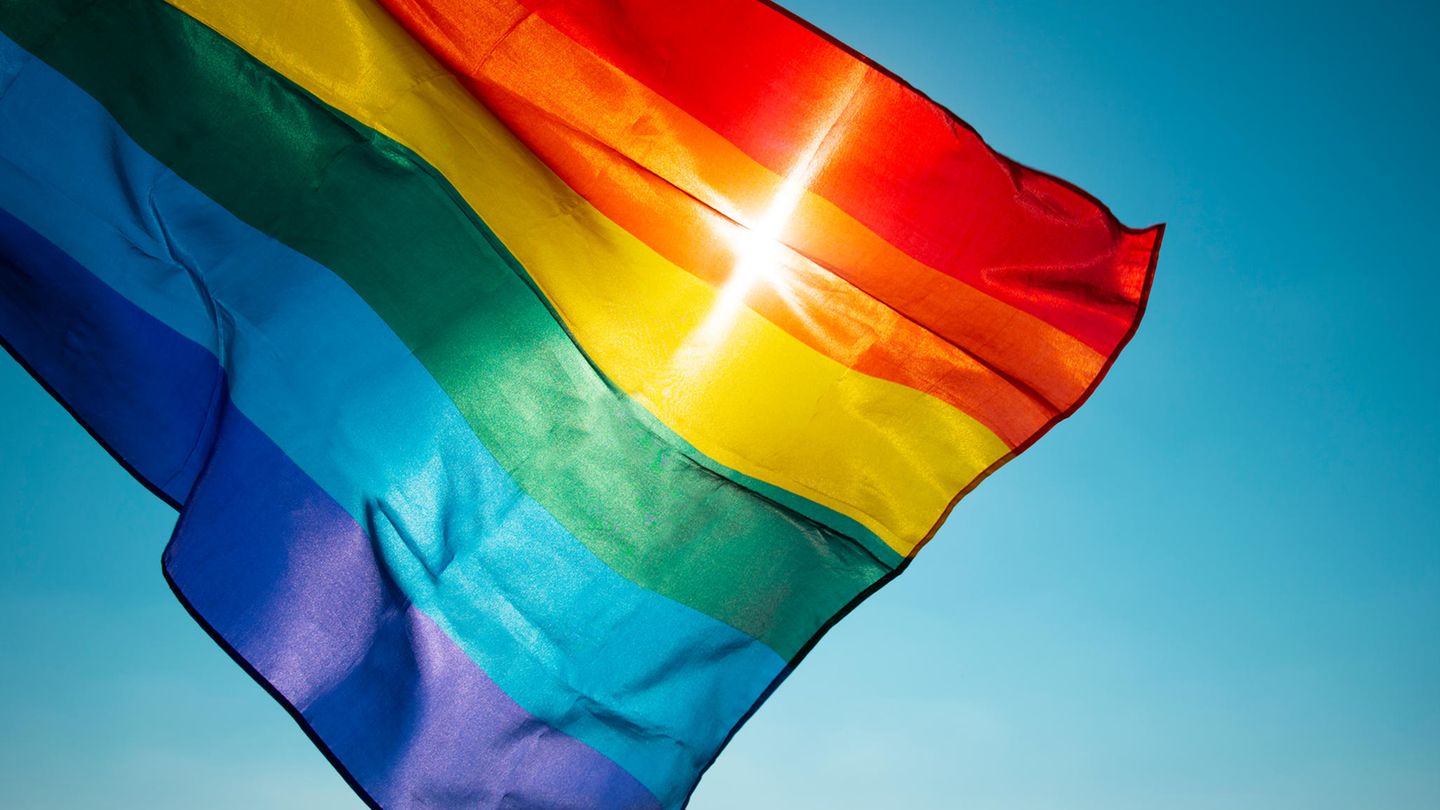opinion
Last year there were 782 hate crimes committed against the LGBTQ community. But the number of unreported cases is high. Many cases are not reported or are incorrectly recorded. Basically, something has to change in order for the situation to improve.
It’s the beginning of October: In Duisburg and Erfurt, strangers light rainbow flags as a result of the Christopher Street Days. In Bad Waldsee in Baden-Württemberg, a rainbow-colored bench is destroyed and in Hamburg four men are first insulted by strangers in an anti-gay manner and then beaten. Only a few days later, a 40-year-old in Berlin was threatened with a gun after a gay kiss.
These queer hostile incidents are not uncommon. Even in the 21st century, queer people are severely restricted in their personal freedom. Before every hug or kiss – even holding hands – in public, members of the LGBTQ community must check their surroundings. They have to avoid certain places altogether. The fear of being physically or verbally discriminated against or attacked because of their sexual orientation or identity is omnipresent.
80 to 90 percent of crimes do not end up with the police
The authorities registered 578 cases of hate crime against sexual orientation and 204 cases against gender and sexual identity in 2020. A total of 782 hate crimes committed against members of the LGBTQ community were recorded. That’s a 36% increase over 2019.
Not only that every crime against our fellow human beings is one too many: The number of unreported cases – i.e. the incidents that are not reported to the police – is much higher: Sebastian Stipp, one of two contact persons for queer people in the Berlin police, estimates them to 80-90 percent.
“Neutrality helps the oppressor, never the victim. Silence strengthens the tormentor, never the tormented, ”said writer and Nobel Peace Prize laureate Elie Wiesel. A quote that makes it clear how important it is to prosecute verbal or physical incidents. The first step: those affected must report the incidents to the police. But this is where the problem usually begins.
Fear and shock
In a survey published in 2020 by the EU Fundamental Rights Agency – in which more than 16,000 queer people from Germany took part – only 13 percent of those questioned went to the police after an incident. In the past five years, 23 percent have avoided reporting an act of violence out of fear of a homophobic or transphobic reaction from the police.
The reasons vary from person to person and range from fear, shock, shame to the fact that some people who have been insulted or attacked in a queer-hostile manner have not yet come out themselves. Mistrust and reservations about the police are also not uncommon. Many older members of the community still know the police as part of the state persecution of homosexuals in Germany.
When asked why they did not go to the police after an attack, around 40 percent of those questioned answered that they did not think that would help. Other motives were, for example, that the incident did not seem bad enough to those affected.
It can not go on like this!
The situation in Germany urgently needs to change. It cannot be that people in Germany in the 21st century still have to be afraid to show their love in public. These are massive restrictions on personal freedom. A freedom that is firmly anchored in our Basic Law.
In my opinion, anyone who is the victim of verbal or physical queer-hostile attacks must be able to turn to the police in confidence. This is the only way to help those affected. To do this, queer people’s trust in the police must be restored. The key elements here are positive experiences. Contact persons are needed: inside the police and an improvement in data collection that meets the demands of the attacks.
In order to improve the collection of data on hate crime against members of the LGBTQ community, a federal-state program for homophobic and transphobic violence, including comprehensive preventive measures, is required. Because the police are a matter for the federal states.
Concern for the Conference of Interior Ministers
The Conference of Interior Ministers has existed as a permanent institution since 1954 in order to anchor cross-border cooperation on a political level. In the last 67 years, the conference has never dealt with the security and freedom of queer people in Germany. It is up to you and Working Group 2 to make hate crime specifically directed against members of the LGBTQ community an issue. The next conference of interior ministers will take place from December 1st to 3rd, 2021.
Last year, the Lesbian and Gay Association (LSVD) drew attention to the situation and called on politicians to act. This year, too, voices are being raised: Currently, more than 46,000 people are campaigning for LGBTQ security as part of a petition. Including prominent voices such as Jochen Schropp, Hape Kerkeling and Jendrik Sigwart. The petition calls for a uniform data base on hate crime against LGBTQ, a common strategy of the Conference of Interior Ministers against violence hostile to LGBTQ and the formation of an independent expert commission.
it goes to the petition.
Sources: / /
Source From: Stern
David William is a talented author who has made a name for himself in the world of writing. He is a professional author who writes on a wide range of topics, from general interest to opinion news. David is currently working as a writer at 24 hours worlds where he brings his unique perspective and in-depth research to his articles, making them both informative and engaging.




